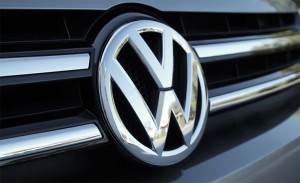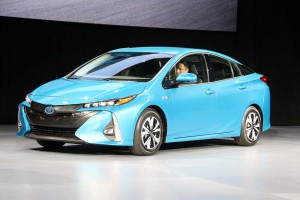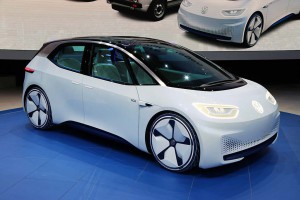When the final 2016 numbers are totaled next month, Volkswagen AG seems well-positioned to topple the automotive king-of-the-hill, replacing Japan’s Toyota Motor Co. as the world’s best-selling automaker, according to year-to-date sales figures and preliminary estimates for December.
Toyota has been the world’s largest automaker, in terms of sales, for the past four years, and five out of the last six – briefly losing its crown to General Motors following the devastating earthquake and tsunami that hit Japan in 2011.
For the first 11 months of this year, it has lagged behind VW and, “Unless Toyota has a remarkable December, it will lose its No. 1 status,” the Japan Times observed this week.
Through the end of November, worldwide sales for Toyota group brands rose 0.1% from a year earlier to 9.219 million units, while those of the German automaker increased 3.1% to 9.379 million units. The deficit of more than 120,000 units appears insurmountable.
The strong showing by VW has come despite its ongoing troubles in the U.S., the world’s second-largest automotive market, where it has been suffering a double-digit sales decline as a result of its diesel emissions scandal.
(VW reaches another big diesel settlement. Click Here for the latest news.)
But the German maker has built its edge over Toyota with its continued strong showing in China, the world’s largest car maker. There, VW is the largest automotive manufacturer, and it was able to boost Chinese ales increased significantly this year.
(US car sales rebound in November – but for how long? Click Here to find out.)
Toyota has slipped in both China and in the United States, one of its main markets.
In November alone, Toyota’s group sales grew 2.2% from a year earlier to 873,000 units, backed by strong sales of its Prius hybrid cars in Japan and Europe, while Volkswagen’s sales jumped 7.9% to 899,000 units, boosted by a 13.6% surge in the Chinese market.
Toyota’s domestic production grew 2.2% in November from a year earlier to 275,000 units, while its production outside Japan swelled 10.1% to 538,000 units. Its exports fell 2.4% to 159,000 units. The increase in production, however, does not appear large enough to offset Volkswagen’s big edge in China, according to the report in Japan Times.
Volkswagen has paid a significant price to overtake Toyota. Strategically, it is more dependent than ever on China as its sales and reputation in North America have been badly damaged by the diesel emission scandal, which have cost the company nearly $20 billion in fines and court settlements.
In addition, the diesel scandal also brought Volkswagen under greater scrutiny from regulators in Europe and other parts of the world including South Korea where the company has also faced heavy fines.
Volkswagen’s top management also has come under intense pressure from lawsuits and regulators in Germany where the company plans to cut thousands of jobs to reduce pressure on the company’s financial reserves.
The German maker is making a priority of rebuilding its position in the U.S. market. It is also planning to deemphasize diesels in the years ahead, putting more of a focus on electrification. That could be critical for China, as regulators there want to move to zero-emission vehicles to combat the country’s endemic smog problems.
(GM, Ford setting new sales records in China. Click Here for more.)
Toyota, long the top seller in the hybrid market, had been reluctant to invest in more advanced electrification efforts, putting its focus on hydrogen fuel-cell vehicles. But it recently announced plans to add more plug-based models to its line-up.
With the U.S. market expected to dip in 2017, and with uncertainty plaguing China, Japan, Europe and other key markets, the battle for sales supremacy could be up in the air again next year, many analysts believe.
(Paul A. Eisenstein contributed to this report.)



